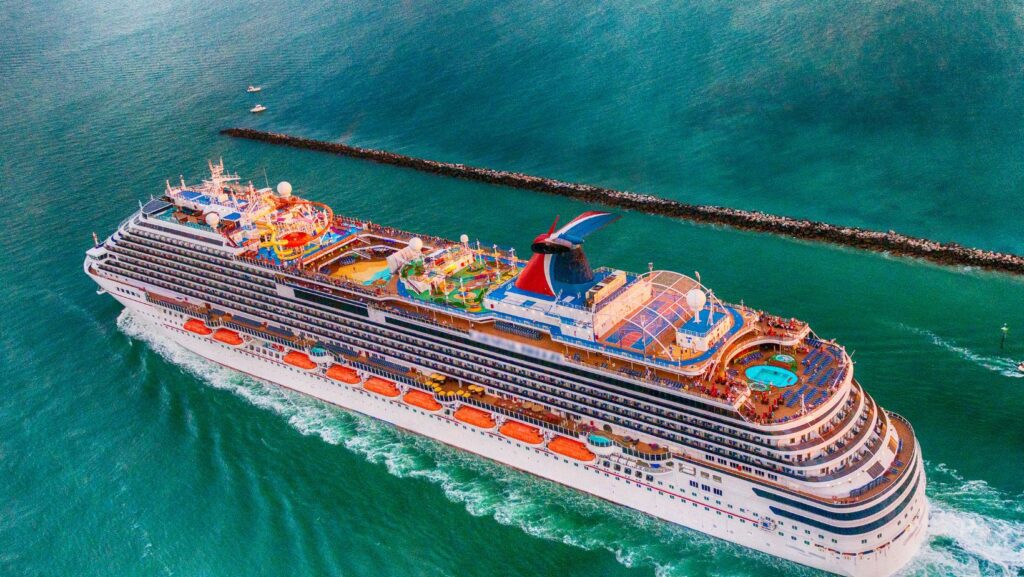
Cruise vacations offer luxury, adventure, and relaxation, attracting millions of passengers annually. However, legal complexities can arise amidst the picturesque settings and lavish amenities, particularly concerning injuries sustained during the voyage. Understanding the legal landscape surrounding cruise ship injuries in international waters is crucial for passengers seeking redress and justice. We delve into the intricate web of laws governing cruise ship injuries, offering insights into jurisdictional challenges, liability issues, and the importance of legal counsel.
Jurisdictional Challenges in International Waters
Navigating the legal waters of cruise ship injuries begins with understanding the jurisdictional challenges inherent in international waters. Unlike incidents on land, where local laws and courts often govern disputes, maritime law introduces a multifaceted jurisdictional framework. The “flag state jurisdiction” concept grants primary authority to the country where the cruise ship is registered. This can lead to complexities as the flag state’s laws may differ significantly from those of the passenger’s home country. Moreover, international treaties and conventions, such as the Athens Convention and the Maritime Labour Convention, further complicate jurisdictional determinations, requiring a nuanced approach to legal analysis.
Liability and Duty of Care
Central to cruise ship injury cases is determining liability and the cruise line’s duty of care towards its passengers. Cruise lines owe a duty of care to provide a reasonably safe environment, maintain equipment and facilities, and ensure the competence of their staff. However, establishing liability can be challenging, mainly when incidents occur in international waters. Factors such as the location of the injury, the cause of the incident (e.g., negligence, equipment failure, or natural hazards), and the passenger’s actions leading to the injury all play crucial roles in legal assessments. Proving negligence or breach of duty requires thorough investigation, documentation, and legal expertise.
Contractual Agreements and Passenger Rights
Another layer of complexity in cruise ship injury cases stems from contractual agreements between passengers and cruise lines.

These agreements often include jurisdiction clauses, liability limitations, and dispute resolution mechanisms. While passengers may sign these contracts as part of the booking process, the enforceability and fairness of such clauses are subject to legal scrutiny. Courts may consider factors like the passenger’s understanding of the contract terms, unconscionable provisions, and public policy considerations when evaluating the validity of contractual agreements in injury cases. Passenger rights, including the right to fair compensation for injuries, must be upheld within the legal framework governing cruise ship operations.
Importance of Legal Counsel and International Expertise
Given the intricate nature of cruise ship injury laws in international waters, seeking legal counsel with experience in maritime and international law is paramount. Cruise ship attorneys with expertise in this niche field can navigate the complexities of jurisdictional issues, liability determinations, and contractual disputes on behalf of injured passengers. Moreover, international expertise enables legal professionals to leverage relevant treaties, conventions, and case precedents to strengthen their clients’ claims. Collaborating with experts in maritime law, personal injury law, and international litigation enhances the likelihood of achieving favorable outcomes for passengers seeking redress for cruise ship injuries.
International Cooperation and Legal Harmonization
Efforts towards international cooperation and legal harmonization significantly address the legal complexities of cruise ship injuries in international waters. International organizations such as the International Maritime Organization (IMO) work to establish uniform standards and regulations for maritime safety and liability.

Conventions like the International Convention for the Safety of Life at Sea (SOLAS) and the International Convention on Standards of Training, Certification, and Watchkeeping for Seafarers (STCW) enhance safety protocols and promote accountability within the cruise industry. Collaborative initiatives among flag states, port states, and coastal states aim to streamline legal processes, improve incident reporting mechanisms, and facilitate cross-border legal assistance for injured passengers.
Evolving Legal Landscape and Future Considerations
The legal landscape surrounding cruise ship injuries continues to evolve, influenced by technological advancements, global events, and changing consumer expectations. Emerging issues such as cybersecurity risks, environmental concerns, and health and safety protocols in response to pandemics introduce new dimensions to maritime law and passenger protection. Future considerations include implementing digital technologies for incident documentation and resolution, enhanced training for cruise ship personnel on safety procedures and passenger care, and ongoing efforts to promote transparency and accountability within the cruise industry. Adapting legal frameworks to address these evolving challenges ensures a robust foundation for safeguarding passenger rights and promoting responsible maritime operations in international waters.
Navigating the legal complexities of cruise ship injuries in international waters requires a comprehensive understanding of jurisdictional challenges, liability principles, contractual agreements, and the importance of legal representation. Passengers injured during a cruise must navigate a complex legal landscape shaped by maritime law, international treaties, and contractual provisions. Seeking legal counsel with expertise in marine and international law is crucial for protecting passenger rights, establishing liability, and pursuing fair compensation. As the cruise industry grows, ensuring adequate legal protection for passengers remains vital to maritime law and consumer rights advocacy.



